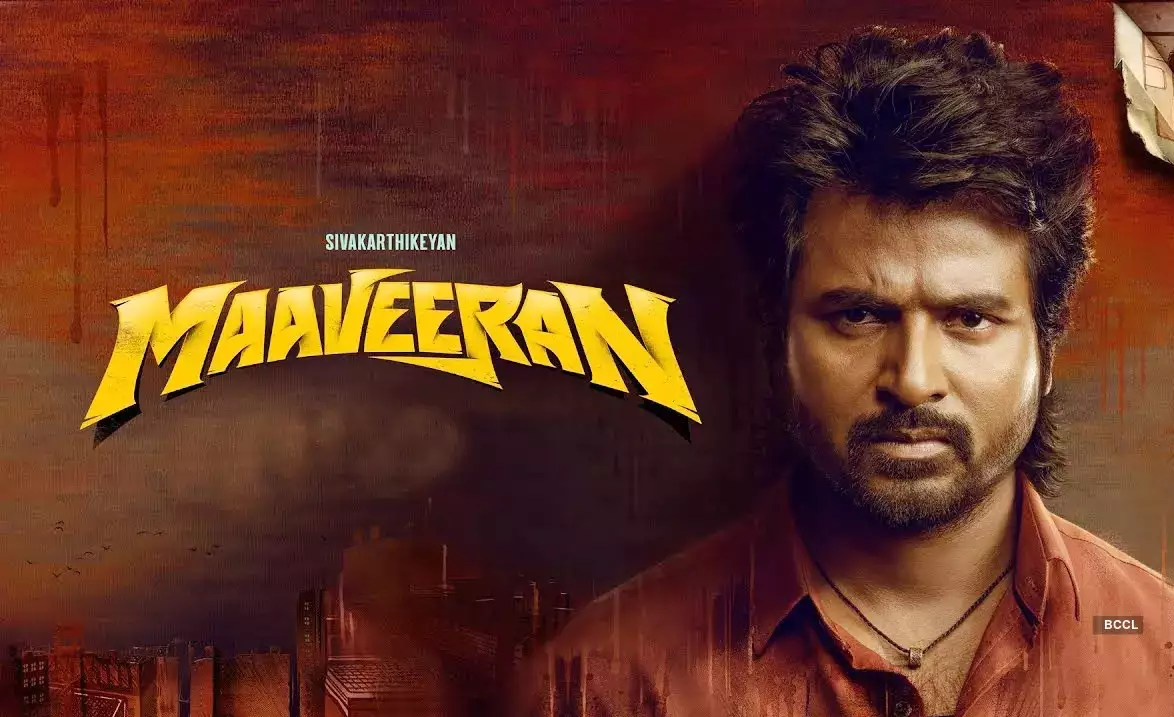3.5/5
I think it was Doctor where I truly began to admire Sivakarthikeyan. Not because of his act which was hilarious in his own right, but because he not only fit the bill so well of a Nelson hero (something Thalapathy in Beast told us wasn’t easy), but that he also wasn’t afraid to step outside of the box and experiment within his genre of comfort. Commercial experimentation, where someone picks concepts that are out of the box for the industry while still appealing to the masses, happens less and less in Southern box offices as budgets go up and more money is involved. It becomes imperative that a movie does well, so in its way, introducing the masses to a new idea with familiar elements is as impressive as a completely experimental script.
SK does that to an extent. He’s begun to try and test the bounds of what people will see him in with films like Velaikaaran, Prince, to name a few. Pair him with Madonne Ashwin, who had one of the most promising debuts I’ve seen in the form of Mandela with his form of satire, and Maaveeran was set as a very exciting combination. Very similar to his counterpart in TFI, Nani, SK brings forward a relatively new director with his production company in this attempt. With Madonne Ashwin at the helm, Maaveeran succeeds well and through; despite the regular blips for a commercial movie, it holds our interest because of one faithful angle and the reason this movie becomes experimental and interesting; the fantasy of the comic book.
PLOT:
Sathya (Sivakarthikeyan) lives with his mother (Sarita) and his sister in a housing colony that gets razed down by Jeyakodi (Mysskin) as his personal land. In return, they get a housing establishment that is poorly built throughout. While his mother is naturally aggressive and fights against these problems, Sathya is timid; in the midst of a freak accident, he suddenly begins to hear the voice of an unknown entity (Vijay Sethupathi) who predicts the future and leads him to become a sort of a “savior”. The journey and the end result makes up the story.
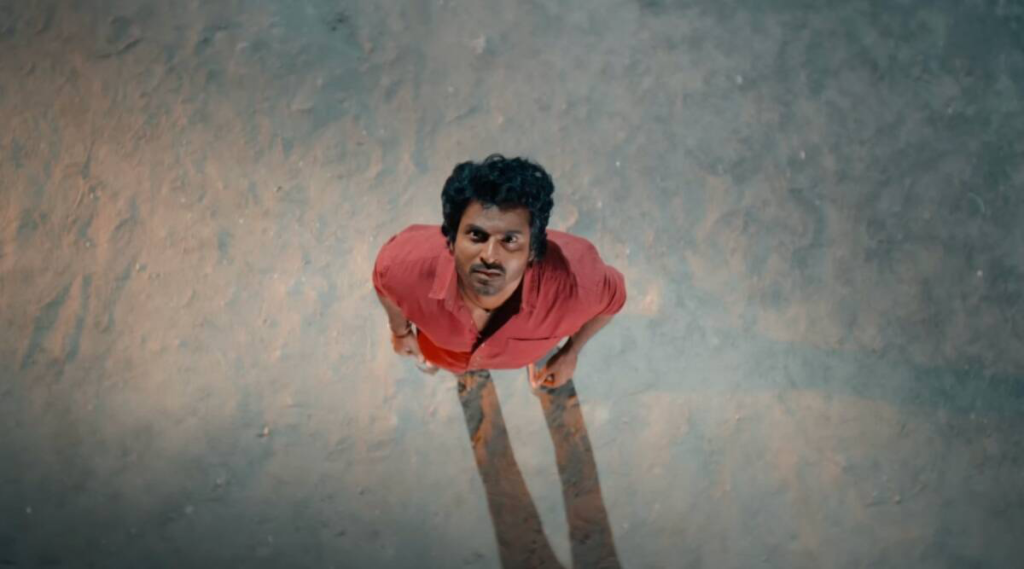
WRITING:
Simple, isn’t it? Director and writer Madonne Ashwin’s second movie has a simple premise. One that we’ve seen before, one that essentially tracks the story of a timid man transforming into the man of the masses, quite literally in this movie. Its also a superhero template that many could have seen coming from the outset, and Ashwin uses very similar tropes to the journey as well. With this tale, execution and the writing of each scene becomes pivotal. As such, the strength of Maaveeran lies in two angles that Ashwin infuses into his writing; the use of the comic book setup with those visuals, and the fantasy angle of Vijay Sethupathi and the voice from above.
The comic book angle is fresh from the go. The images are vibrant and bold, as Ashwin uses the first 35 minutes to set up the track of the comic book really well. He lets the audience know of our hero’s penchant for it, incorporates it into the proceedings at every opportunity, and makes sure to keep reminding us of the setup, something that becomes crucial when the fantasy angle plays in. What Ashwin does to pique our interest in the tried and tested commercial medium is add in the fantasy angle as a means of narrating the story like a comic book! Through using this, he avoids any old style of narration as the writing essentially writes itself throughout the events and adds layers to the story. With these two elements, the movie pops out and becomes a very interesting battle between reality and imagination. He has a chance to make a statement about something like mental health, but never does because he doesn’t want to bog down the movie.
And it never does bog down because, just like Mandela which had a visible distinctness to its comedy and satire through each event, Maaveeran does too. The comedy is written so effortlessly through the events that it never seems introduced. The cynicism and dry humor that had us rolling in the floor of Mandela comes in strong in Maaveeran too; only this time Ashwin writes it carefully not to obstruct the main events as well but to rather complement them. Tracks such as SK’s tryst with a comic book job, interactions with Aditi Shankar, dealing with the new house, and the combo of SK and Yogi Babu really are written so well. Speaking of Yogi Babu, Ashwin writes him a superb comedic role here too. While not as much substance as Mandela, his one liners are rib-tickling and set the stage on fire for sure. The comedic undertone is clearly palpable as Ashwin narrates this world, making us connect to the story more because its so much more relatable.
Ashwin also pokes fun at the events and moods of various characters, including his own protagonist Sivakarthikeyan. His timidness and inability to fight back is used for comedic effect so many times, sometimes even in the middle of the fight as the interval shows. Take the song Scene Ah Scene Ah, for example. Here Sivakarthikeyan has a whole montage about the future this new housing complex holds for him and his society, dancing energetically and filling the screen. Next scene itself, the lock breaks and ceiling chips. When one thinks about it in retrospect, the dramatic irony becomes so easy to laugh at.
Its this writing that Ashwin centers on and makes the first half quick and powerful. The events all transpire one after the other, filled by their sense of social standing or their sense of comedy. Ashwin makes sure his screenplay has punch and doesn’t linger on anything for too long, setting up events and going to the next while balancing the arcs and relationships of characters. SK’s romantic track, his familial situation, the colony, all of them are deftly established and set in motion, resulting in the writing and screenplay complementing each other so well. The writing helps the characters hold the level of tension that accentuates more when the fantasy angle gets introduced; from there, its a fun battle from frame one where VJS’s monotone meets Ashwin’s consistent comedic undertone. When we meet our lead villain, Mysskin as the minister, the fun doesn’t stop with solid pre-interval to interval sequences that really set up for a good second half.
Unfortunately, Ashwin’s second half does have a dip in his writing. It isn’t necessarily his fault, as he tries to bring forward more tension and strain SK’s character until his breaking point as much as possible, navigating his journey with “the voice”, but in a 160 minute commercial flick, it does go a bit over the top. Directionally there are some execution problems with the tone, but writing wise too the events just become too repetitive and comedic without much substance. Unnecessary scenes like a TV interview where SK falsely admits his fault just don’t add anything and extend the runtime. There’s an attempt made with the cat-and-mouse game to establish Jeyakodi and his assistant (Sunil)’s dynamic, but even that isn’t explored. As a result, our villain is actually the political scheme, with the face of it’s villainism relying solely on Mysskin’s terrific negative presence.
This leads into the exploration of Sivakarthikeyan’s character where the screenplay even isn’t that sharp anymore. One minute, SK is pondering his situation, the next he’s taking steps that actively worsen it rather than taking matters into his own hands. Its a superhero template, so we’re always looking for the superhero transformation, which happens thankfully in the last 20 minutes. They’re cliche but written crisply enough to the point where it keeps our attention. The ending itself is slightly different, fulfilling the story’s arc before bringing in the fantasy. Despite that, definitely there’s a feel that one would have wanted better events to be written in the second half. Maybe more scenes with SK as the complete Maaveeran?
Ultimately, Ashwin’s writing is predictable, but he knows this; he attempts to make it as unpredictable as possible through two fresh angles and an attempt to comedically base the movie so that it doesn’t sink, which definitely work. Ashwin’s sense of reality and avoiding any unnatural scenes is also a huge blessing. The direction takes it away from there.
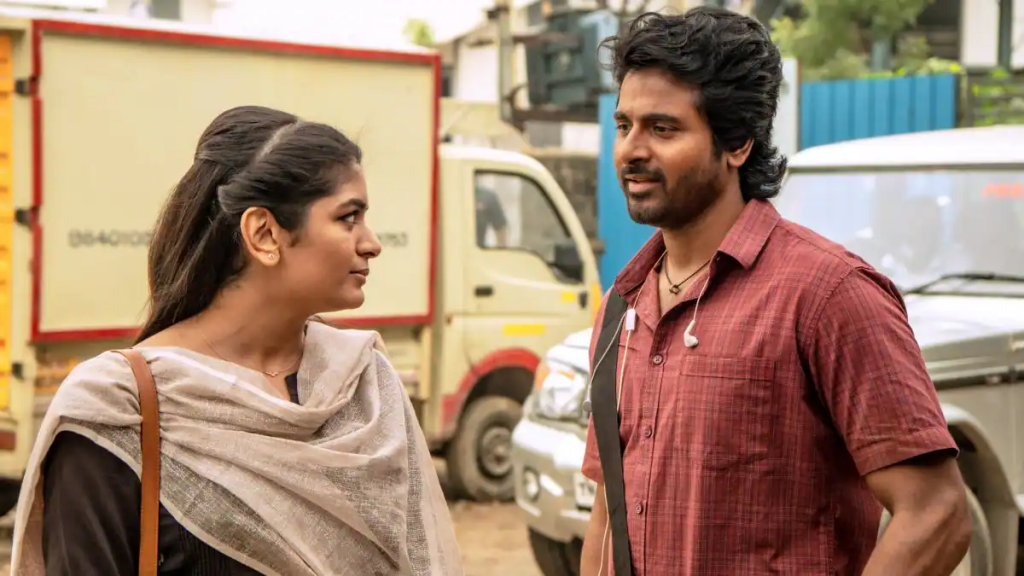
DIRECTION:
Directionally, Ashwin is bang on in the first half, dips a little later on, but then comes back strong for the end parts. Localizing the area of the building for us with the first frame itself, he grounds his story in a sense of reality and doesn’t let go. We get an idea as to what and where the problems are happening which lets the narration go by so much more effectively. The masterstroke of the writing, filling it with a fantasy angle, is executed so well. The consistent looking up from SK and other characters really helps us as a viewer feel where the voice is coming from and infuses a new comedic and storytelling flair whenever its on screen. This helps enhance the fantasy angle of the movie, something that the comic books are already doing. As a storyteller, with techniques like narrating most of the movie after the “voice” angle with a comic book flair, Ashwin is on point. There’s always an attempt to bring us into the world of Maaveeran and execution that allows us to sympathize with the characters by seeing their small movements and the way they react to them.
Ashwin’s directorial mastery on comedy just comes more to the front with Maaveeran. The way he times the comedy to sparkle like that is superbly memorable. A scene where SK and the voice interact initially where SK predicts a fan falling is an example of this; the dialogue, paced perfectly with the action itself, all captured from angles that not only make us laugh but establishes the relationship that SK has with his voice. Throughout all the events, the comedic undertone never loses its touch like in Mandela, leading us to get comedy from simple events. More or so, its the way the narrative structures itself despite the inherent predictability in the subject. Keeping a movie where the classic superhero template is fresh in audiences minds entertaining is no mean feat; and Ashwin does that throughout.
We’re always intrigued by the story and its Ashwin’s pacing throughout. Despite it slightly hurting him in the second half, he never accelerates the pace at any point; he takes his time throughout the story generally developing its arcs, characters, and proceedings before establishing a base narrative, something that works really well. He keeps it simple; nothing too complex in terms of visual motifs, just what’s presented in front. Extracting the localities charm, with good storytelling and performances is all they need.
Take the pre-interval and interval sequence, the height of such a banger first half. Every move of SK has his character embedded in him, but the action is crisp and to the point whilst also humorous. An inform SK with Ashwin taking us around the outside of the building and letting us have enough tension to the point where SK retaliating is a mass moment in itself; keeping his character consistent though helps to have the reality grounded into it.
Ashwin also reminds us of the social and present day relevance. Suthi paar da, paar da, it seems like his filmmaking keeps telling us. Look at the plight, it applies to you too, rise the Maaveeran inside. There’s usually a message tucked into Madonne Ashwin movies, with Mandela showcasing more depth, but I wouldn’t be surprised if beyond the masquerade of a comedic lacquer, Madonne Ashwin is asking us to spur change and reminding us about the plight of others. Subtlety of social messages has its place, and Ashwin nails it in a commercial movie.
The direction does dip a bit with the action later on in the second half; it becomes too repetitive before the climax, which again is directed well as SK becomes Maaveran in these sequences. The runtime begins to wear us down a bit as the pacing doesn’t have the same sharp vision it had before. Scenes that are supposed to be visceral are directed with a touch of distance that briefly makes the movie be a little boring as Ashwin’s grasp over the comedic elements isn’t seen here. The climax again impressed for me; moments like where the voice tells him to go one way, but SK goes the other really struck a chord.
The lack of visual imagery and visual elements to represent aspects of the story is also noticeable, as something to aid us into really feeling the connection of the story. However, small gripes overall as Ashwin the director really does impresss.
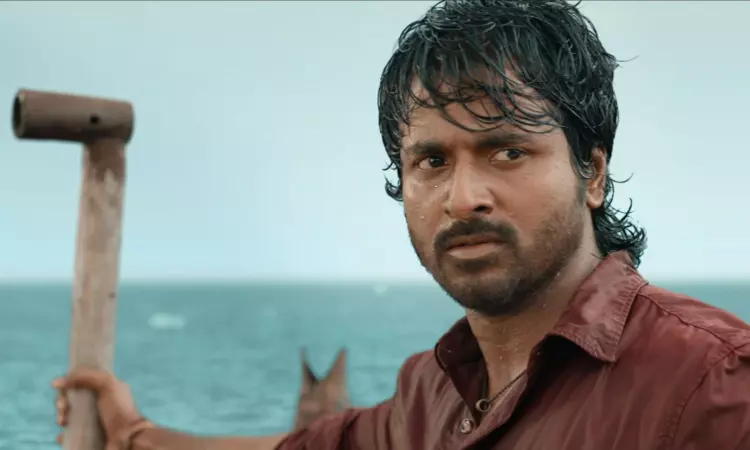
PERFORMANCES:
Man, the performances sparkle in Maaveeran! Sivakarthikeyan makes me adore him with each of his movies. He plays to his strengths as the lovable goof here for sure, but more than that there’s an attempt to showcase genuine vulnerability done so well. His screen presence embodies Sathya so well that after a while you don’t see SK; you see Sathya. The voice acting and reactions are also done quite deftly, and Maaveeran definitely gives SK another gem in his filmography. Dancing wise, the one take is very good and sets the movie on a roll. Aditi Shankar gets probably the biggest role of her career in terms of screentime, which she does well with. Saritha as the mother is pretty good, while Mysskin as a villain is a find man. Raw negative energy that Ashwin doesn’t do the best in dealing with, but proper shudders with his screen presence. Yogi Babu’s comedy is really good with his standard nonchalant comedic timing. VJS’s VoiceOver is the cherry on top, his nonchalance lighting up the screen
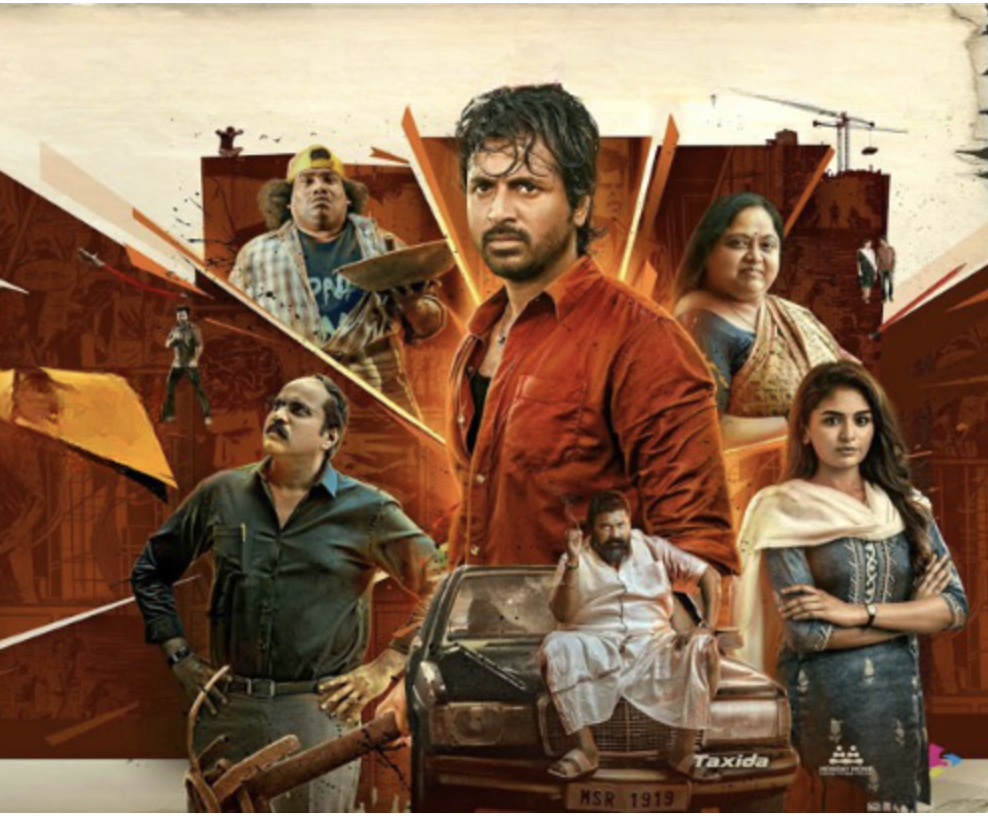
TECHNICALITIES:
Technically, Maaveeran does shine. Bharath Shankar’s work as a music composer helps the movie move well, with Scene Ah Scene Ah picturized nicely. BGM complements the scenes and helps with the impact. Cinematography by Vidhu Ayyanna is top notch as he brings technically strong angles from top, from the side, and all around to show us the impact of the fantasy. Some frames and the color scheme is also good. Production values are solid, dialogues are quirky and powerful when needed. Philomin Raj as the editor could have cut out at least 5-10 minutes from the second half; the 160 min runtime shows.
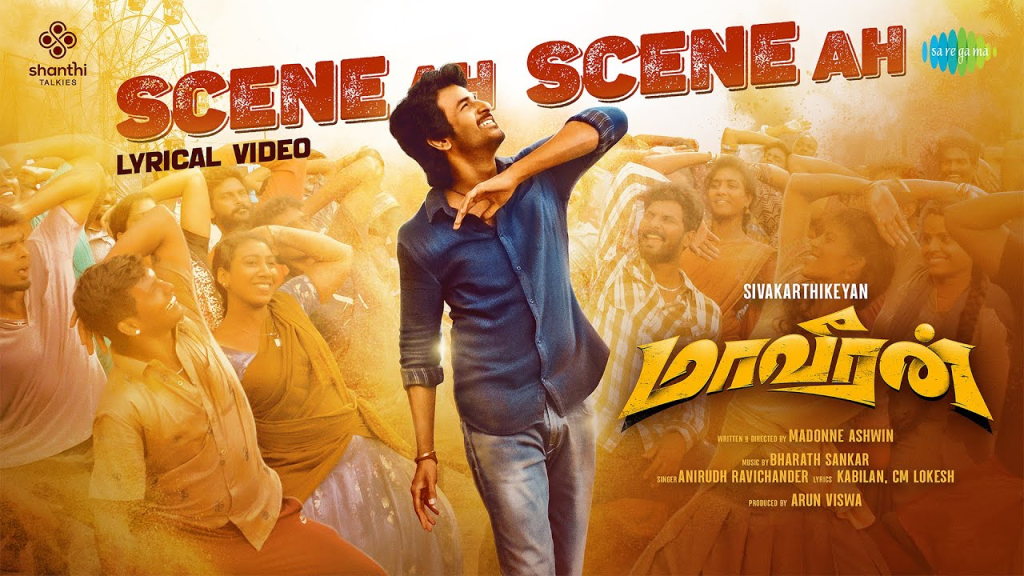
SUMMARY:
So in summary, Maaveeran is definitely a solid commercial entertainer. Ashwin knows he has a predictable plot and packages it quite neatly with a comic book and fantasy angle that adds a layer of writing; combine it with his comedically sharp and steady direction, we have a winner. Technicalities and performances lend a hand. We can debate over the flaws, but it’s undeniable that a SK comeback, especially at the peak of his career, feels good! Expectations have been matched, predicting this to do well at the B.O.!
